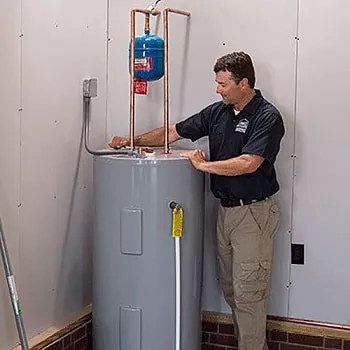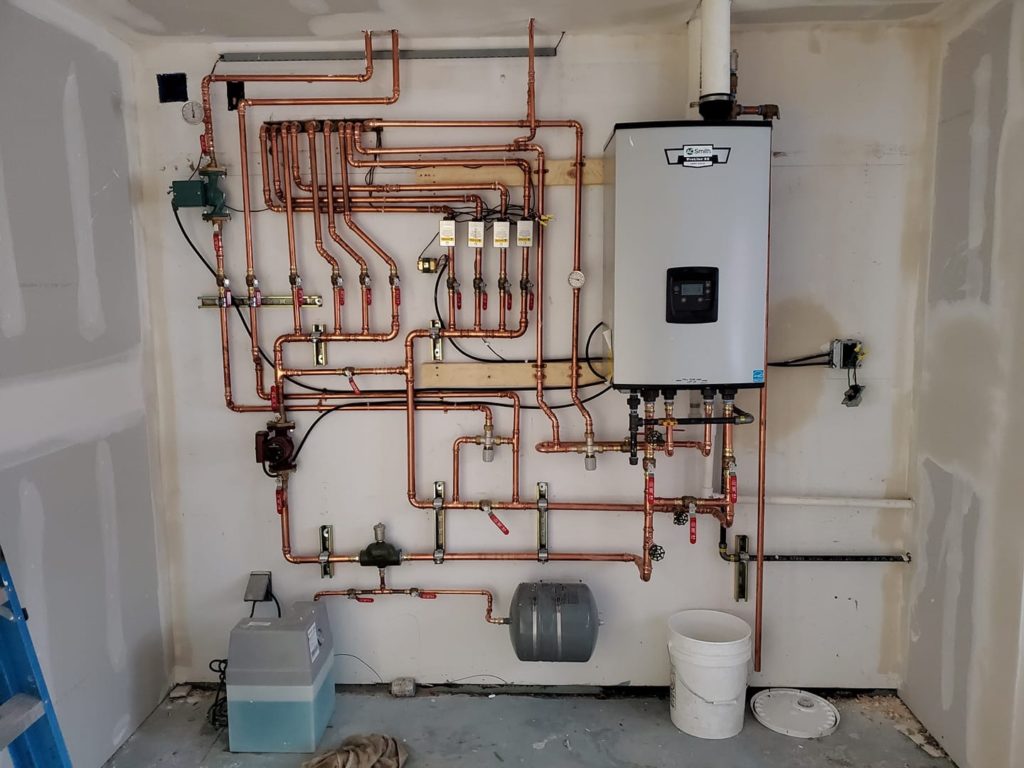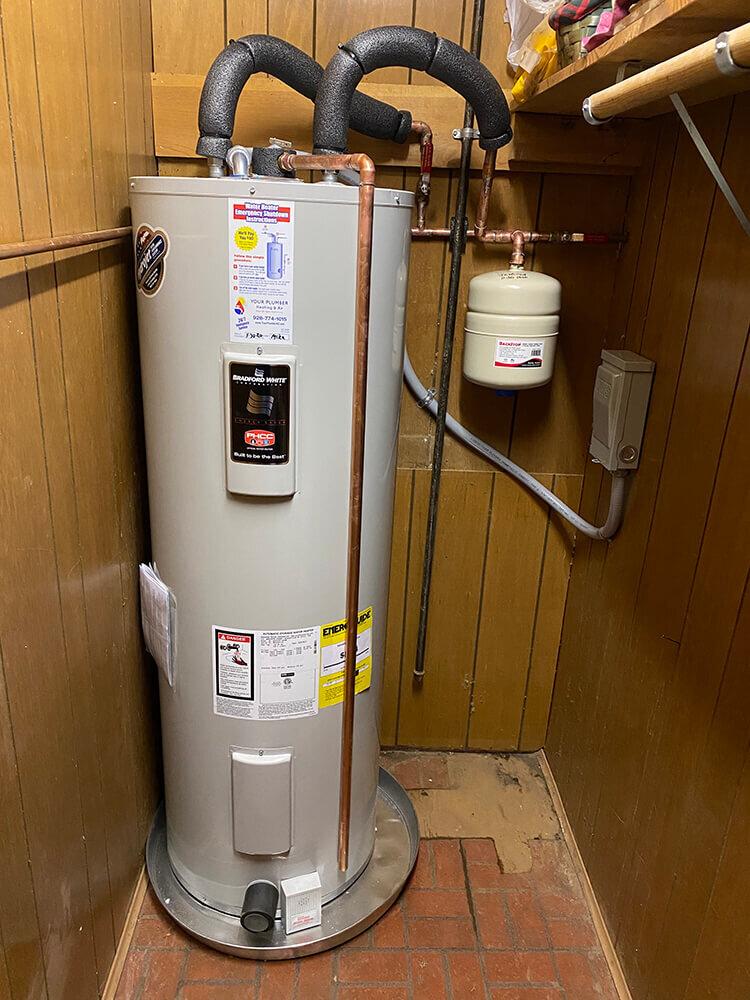Water Heater Installation for Better Hot Water Efficiency and Functionality
Water Heater Installation for Better Hot Water Efficiency and Functionality
Blog Article
Total Guide to Water Heating SystemInstallment and Substitute
Comprehending the complexities of hot water heater installation and replacement is vital for homeowners seeking to make sure efficiency and reliability in their hot water supply. From choosing the ideal kind and size to carrying out a seamless installation procedure, numerous factors must be considered to stay clear of usual pitfalls. This guide will offer you with the required actions and understandings to browse the intricacies of this home enhancement job, while also stressing essential maintenance methods that can prolong the life of your system. As you check out these elements, you may find on your own reassessing your existing setup and identifying areas for renovation.
Sorts Of Hot Water Heater
When considering hot water heater setup and substitute, it is important to recognize the different kinds of water heating units readily available out there. One of the most usual types consist of tank water heating units, tankless water heating units, heatpump hot water heater, and solar hot water heater.
Tank water heating systems are traditional systems that save a specific quantity of warm water, making them readily offered when needed. In comparison, tankless water heating systems supply warm water on need, eliminating the need for storage.
Heatpump hot water heater utilize power to move heat from the air or ground to heat water, providing significant energy savings however needing more area and details installment problems. Solar water heaters harness solar energy to warmth water, providing a green choice with possible lasting expense savings, although they usually need a back-up system for over cast days.
Understanding these alternatives ensures informed choices pertaining to setup and substitute, dealing with details demands and preferences.
Choosing the Right Dimension
Choosing the ideal dimension for a hot water heater is critical to guarantee ideal efficiency and efficiency. An unit that is as well small will struggle to satisfy home needs, bring about irregular warm water availability and boosted power usage. On the other hand, an extra-large water heater can cause unnecessary energy waste and greater energy costs.
To figure out the right size, take into consideration the family's peak hot water use. This can be determined based upon the number of passengers and their common warm water demands. A family members of 4 may require a water heating unit with a capacity of 50 to 80 gallons, depending on the use patterns, such as simultaneous showers and washing.
In addition, analyze the recovery rate, which measures how rapidly a heating system can replenish warm water after it has been made use of. For tankless versions, concentrate on the flow rate, determined in gallons per minute (GPM), to ensure it satisfies the home's simultaneous need.

Installation Refine Review

Next, the old unit has to be disconnected and eliminated, making sure to comply with local codes and policies concerning disposal. Once the old system is out, the brand-new hot water heater can be positioned in position. This step entails attaching the water supply lines, guaranteeing that all installations are leak-free and safe.
After developing water links, it's vital to connect the power supply, whether electrical or gas, following the producer's guidelines carefully. As soon as all connections are made, the system must be full of water, and the power can be turned back on. It's important to check for leakages and guarantee the water heater he has a good point is operating correctly prior to completing the setup procedure.
Usual Installment Errors

Another constant mistake is ignoring to adhere to neighborhood codes and laws. Falling short to adhere to these standards can not only lead to security dangers however may also result in pricey penalties or the need for expensive reinstallation.
Stopping working to protect links or making use of the wrong kind of fittings can lead to leaks and water damage. By avoiding these usual installation mistakes, house owners can ensure their water heating unit runs safely and effectively, making best use of efficiency and longevity.
Maintenance Tips for Longevity
Correct upkeep of a water heater is vital for its longevity and optimal performance. Normal assessments and maintenance can avoid costly repairs and prolong the home appliance's life-span. Begin by inspecting the temperature setting; it should typically be set in between 120 ° F and 140 ° F for optimal power efficiency and security.
Every six months, flush the container to remove sediment buildup, which can hinder heating effectiveness and cause rust. To do this, switch off the heating unit, connect a hose to the drain valve, and allow the water run till it is clear.
Anode rods ought to be inspected each year and replaced when they are worn away. These poles assist stop storage tank rust by attracting harsh components in the water.
Furthermore, inspect the stress safety valve regularly to guarantee it is functioning correctly. This shutoff is important for protecting against excessive stress accumulation within the storage tank.
Last but not least, take into consideration setting up an expert maintenance check every couple of years for detailed assessments and servicing. By adhering to these maintenance pointers, house owners can over at this website significantly boost the performance, security, and lifespan of their hot water heater, making certain trustworthy warm water for many years to come.
Final Thought
In conclusion, proper installment and upkeep of water heating units are vital for making certain effectiveness and long life. By recognizing these important aspects, house owners can accomplish a trustworthy warm water supply while decreasing possible issues connected to water heating unit procedure.
Recognizing the intricacies of water heating unit setup and substitute is vital for homeowners looking for to guarantee efficiency and reliability in their hot water supply.Container water heating systems are traditional systems that store a certain quantity of warm water, making them readily offered when required. In contrast, tankless water heating systems give warm water on need, getting rid of the need for storage space. Picking a water heating system that is either too little or too big can lead to inadequacies, resulting in inadequate hot water supply or extreme power intake.
By comprehending these vital elements, property owners can attain a trustworthy hot water supply while decreasing prospective problems connected to water heating unit procedure. gas leak repair.
Report this page